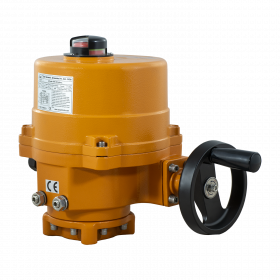Valve manufacturers play an essential role in the production and distribution of valves that are used in various industries such as oil and gas, water treatment, and power generation. Valves are critical components that control the flow of liquids and gases in pipes, tanks, and other equipment. In this article, we will provide a comprehensive guide to valve manufacturers, including the types of valves they manufacture, the processes they use, and the industries where valves are commonly used.
What are Valve Manufacturers and What Do They Do?
Valve manufacturers are companies that specialize in the production and distribution of valves. Valves are used to regulate, control, or direct the flow of liquids or gases through pipes and other equipment. Valve manufacturers may produce a wide variety of valves, from simple ball valves to more complex control valves. They may also provide services such as valve repair, maintenance, and customization.
Various types of valves manufactured by valve manufacturers
Valve manufacturers produce a wide range of valves, each designed for a specific purpose. Some common types of valves manufactured by valve manufacturers include:
Ball valves: These valves have a spherical disc that controls the flow of fluids through a pipe. They are commonly used in applications where a tight shut-off is required.
Gate valves: These valves have a gate or wedge that moves up and down to control the flow of fluids. They are commonly used in applications where a full open or full close is required.
Globe valves: These valves have a disc that moves up and down to control the flow of fluids. Applications requiring precise control commonly use them.
Check valves: These valves allow fluids to flow in one direction only. They are commonly used to prevent backflow in piping systems.
Butterfly valves: These valves have a circular disc that rotates to control the flow of fluids. They are commonly used in applications where a quick shut-off is required.
Valve Manufacturing Processes and Materials Used
Valve manufacturing processes vary depending on the type of valve being produced. Some common processes include casting, forging, machining, and welding. The materials used in valve manufacturing also vary depending on the application and the type of valve being produced. Common materials include stainless steel, carbon steel, brass, and plastic.
Applications of Valves in Various Industries
Valves are used in a wide variety of industries, including oil and gas, water treatment, power generation, and chemical processing. In the oil and gas industry, valves are used to control the flow of oil and gas through pipelines and to regulate the pressure in oil and gas wells. In the water treatment industry, valves are used to control the flow of water through treatment systems. In the power generation industry, valves are used to control the flow of steam and other fluids in power plants. In the chemical processing industry, valves are used to control the flow of chemicals through production processes.
Choosing a valve manufacturer: Factors to consider
When choosing a valve manufacturer, there are several factors to consider, including the type of valve needed, the application, the material, and the manufacturer’s reputation. It is important to choose a manufacturer that has experience in producing the type of valve needed and that uses high-quality materials and manufacturing processes. Additionally, the manufacturer should have a good reputation for quality customer service, and should be able to provide timely and reliable delivery of valves. It is also important to consider the manufacturer’s certifications and compliance with industry standards and regulations.
In conclusion, valve manufacturers play a critical role in the production and distribution of valves used in a wide range of industries. When choosing a valve manufacturer, it is important to consider the type of valve needed, the application, the material, and the manufacturer’s reputation. With the right valve manufacturer, businesses can ensure that they have high-quality valves that meet their specific needs and help them to operate their systems safely and efficiently.


